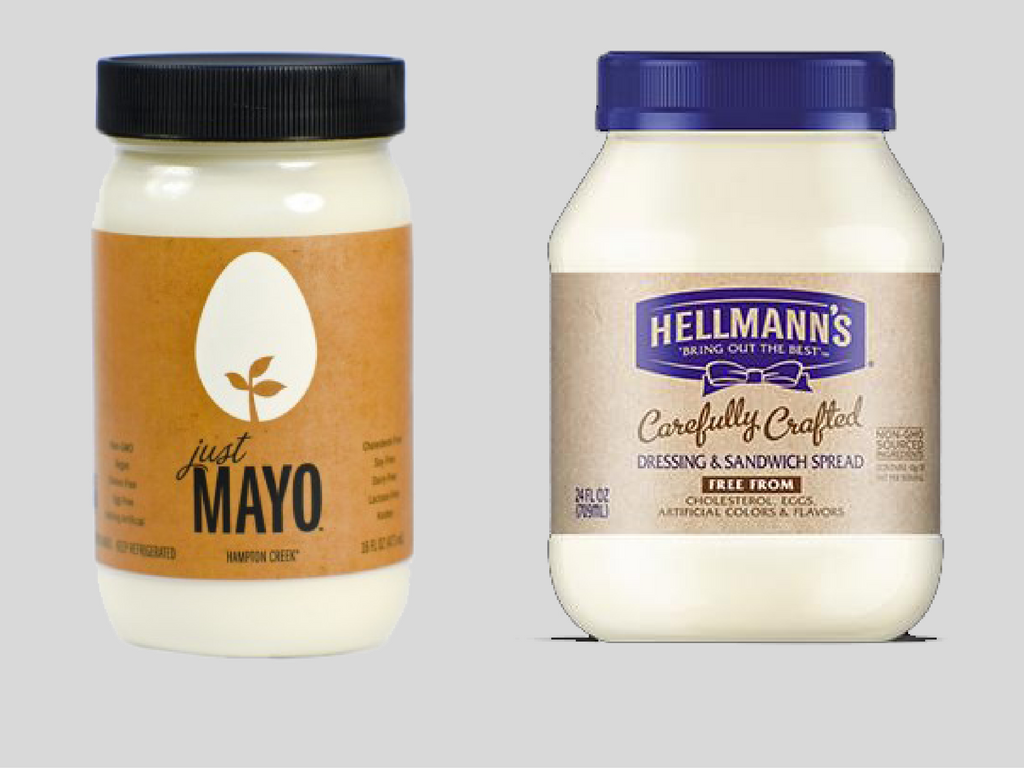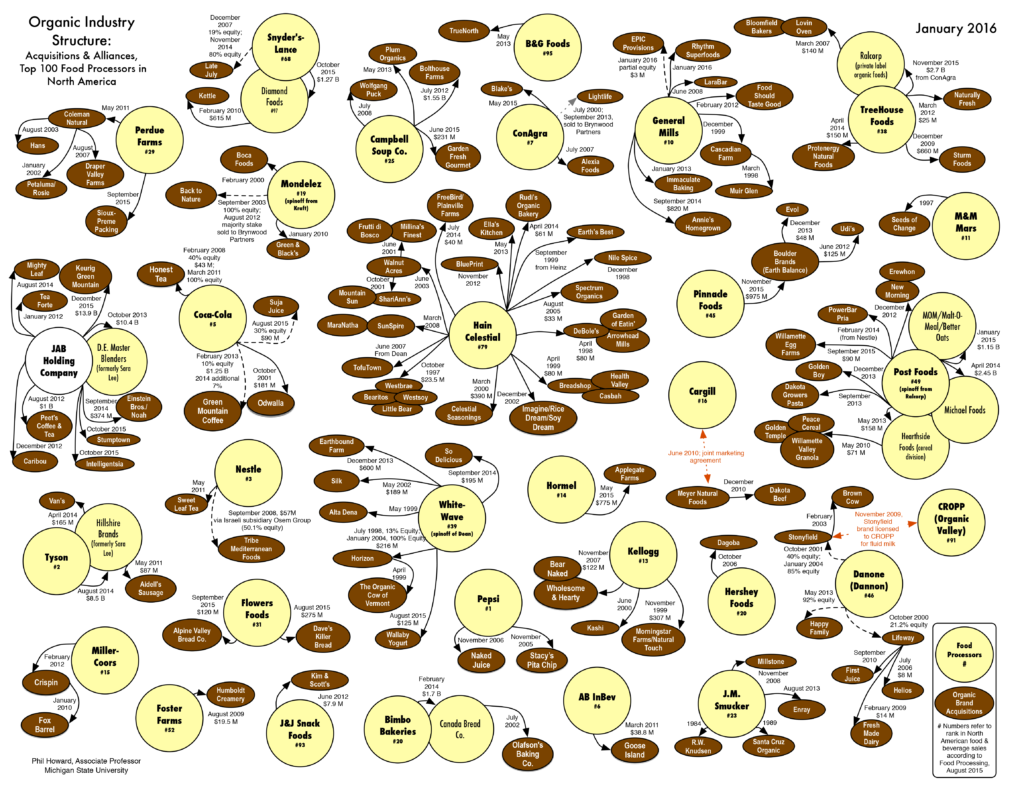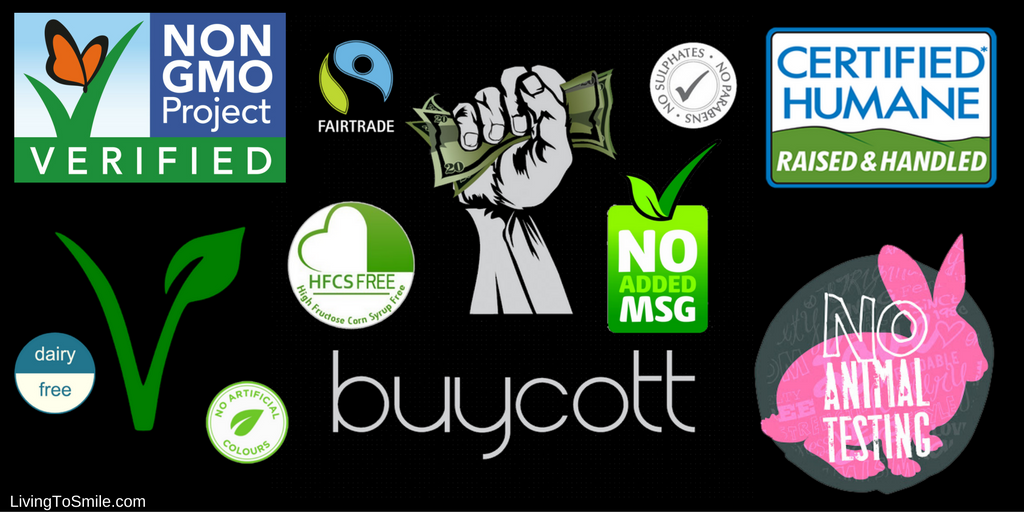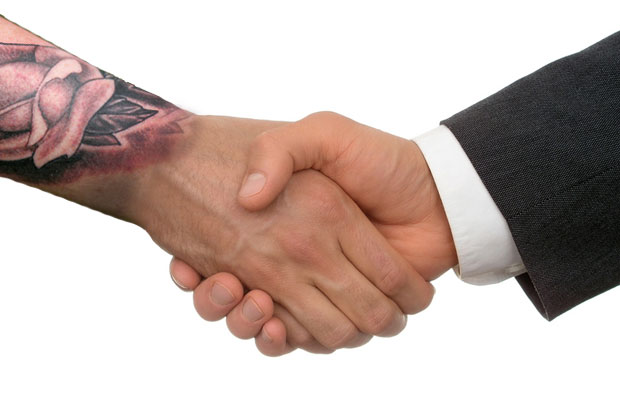Every day more companies seem to be jumping on the ethical consumerism bandwagon. As consumer consciousness rises, market veterans respond with more ethically responsible products. Simultaneously, new companies thrive off emerging markets demanding healthy products that consumers can believe in and trust. Boycotts of unethical organizations happen all the time, as do buycotts, the purchasing of products to support a company’s policies.
Ethical questions are become widespread regarding which forces create more significant change. On one side there is an absolutist approach: “Don’t ever buy from that company because they still make these other products or do this to the environment”. While the pragmatists say, “The more of this particular product people buy from that company, the less they will sell these other products.”
 Let’s take a look at two products- Hellman’s new Vegan Carefully Crafted Dressing and Hampton Creek’s Just Mayo, an industry leading vegan mayonnaise alternative. Recently, Unilever, the parent company of Hellman’s, notoriously fought Hampton Creek in court to try to stop them from calling their egg-free mayonnaise “Just Mayo”. Hellman’s argued that consumers would be confused because “Mayonnaise” is a specific product that contains egg, as defined by the FDA’s definition of the condiment. Unilever eventually dropped the case due to a public outcry against the David vs. Goliath nature of the fight. Now, a year later, Hellman’s decided that if you can’t beat them, you should join them. Hellman’s just launched their own version of vegan mayo, notably without any derivative of the word mayonnaise on their packaging.
Let’s take a look at two products- Hellman’s new Vegan Carefully Crafted Dressing and Hampton Creek’s Just Mayo, an industry leading vegan mayonnaise alternative. Recently, Unilever, the parent company of Hellman’s, notoriously fought Hampton Creek in court to try to stop them from calling their egg-free mayonnaise “Just Mayo”. Hellman’s argued that consumers would be confused because “Mayonnaise” is a specific product that contains egg, as defined by the FDA’s definition of the condiment. Unilever eventually dropped the case due to a public outcry against the David vs. Goliath nature of the fight. Now, a year later, Hellman’s decided that if you can’t beat them, you should join them. Hellman’s just launched their own version of vegan mayo, notably without any derivative of the word mayonnaise on their packaging.
Legal battle aside, the absolutists would argue to support Hampton Creek who has put out healthy products from their conception. Pragmatists on the other hand would support Hellman’s move to expand their line to include a vegan option while arguing that the more people who buy it, the more Unilever/Hellman’s will see the advantage of offering healthier products.
The above scenario is one of dozens of cases in which companies with a history of making unhealthy products, now presenting consumers with offerings that are better for the body and environment. The irony is that in market capitalism, David usually is only competition for Goliath until a “friend invite” is sent, usually in the form of a windfall for David.
A big player in ethical consumerism is Seventh Generation. Seventh Generation is a Vermont-based manufacturer of eco-friendly cleaning products founded in 1988. A well-known industry leader, Seventh Generation has set two decades of benchmarks for increasingly getting their products into the homes of mainstream consumers. Along came Unilever this year, buying up Seventh Generation for a whopping $700 million. Seventh Generation remains independent with increased reach, and Unilever adds an established “green” player to their portfolio.
Do you get mad at Seventh Generation for selling out to the Unilever whose palm oil products have devastated rainforests? Or perhaps look at Unilever as taking a step in right direction? Megacorporations have known for decades that many of their products are causing destruction to human bodies and the environment. Now that they are responding to consumer demand, are they any more respectable than they were in the past?
A short list of Goliath’s buying Ethical Davids:
- Unilever: Honest Co. (In talks for $1 billion buyout), Seventh Generation
- Clorox: Burt’s Bees
- Dannon: Stonyfield, Happy Family
- Dean Foods: Horizon Organics, Silk
- Kellogs: Kashi, Morningstar
- Pepsi: Naked Juice, Stacy’s Pita Chips
- General Mills: Annie’s, Nature Valley, Cascade Farms
- Colgate-Palmolive: Tom’s of Maine
This list could go on for pages. Other big players are Coca Cola, Heinz, Perdue, Cargill, Hain Celestial, ConAgra, and Campbells are dominating players in the buyouts that are swooping the organics industry.

Consumers are often shocked when they learn that their favorite healthy brand is owned by a company that has a track record of creating products that they would never support otherwise. Of course when an independent company is told, “Look, we can get worldwide distribution for your product…”, there have been almost none who say, “No, we will continue to go our own”. Those holdouts do exist though, here is a partial list put together by Dr. Phil Howard, an Associate Professor in the Department of Community Sustainability at Michigan State and author of the infographic above.
Refusing the Buyout (for now):
- Alvarado Street Bakery
- Amy’s Kitchen
- Bob’s Red Mill
- Cedarlane
- Cliff Bar: Luna
- Eden Foods
- Equal Exchange
- Frontier Natural Products: Simply Organic
- Hampton Creek
- Lundberg Family Farms
- Nature’s Path: Country Choice Organic, Enviro-Kidz
- Organic Valley: Organic Prairie
- Pacific Natural Foods
- Sno Pac
- Springfield Creamery: Nancy’s
- Traditional Medicinals
- Yogi Tea
It’s not often a matter of if, but when, as mega-companies begin to create their own versions of healthy offerings to help meet the swelling demands of the market. For some of these companies it is just a matter of time before they either get bought, or face obscurity from mounting competition. What we generally see is that when independent companies reach a valuation of roughly a billion dollars, the conglomerates rarely fail to make a move.

When are “sustainable”, “organic”, and other niches catering to the demands of ethical consumerism sincere, and when are they simply marketing tools. Does it matter? It can can be assumed that as demand rises for these type of products in wealthy nations, markets for the older cheaper products will increase in developing nations. Is it ethical to sell these products to emerging markets knowing there are healthier alternatives? Whose responsibility is it to educate consumers? Governments thrive off of prosperous economic growth from these corporations. As such, it can be assumed that neither of these parties will push healthier products until the people can afford them, even if there are costly externalities pushed on consumers in the form of health and environmental impacts. A robust example of this type of scenario is the tobacco industry’s decline in the West while shifting sales soar in developing countries. The beat goes on.
In the many countries, including the United States, it is clear that there is an increasing shift in consumer demand towards ethically sourced products. Social media has had a major impact in forcing transparency and increasing awareness of the consequences of our purchases. Whether a heathy and/or environmentally friendly product is made by “David” or a “Goliath”, the fact is that more people are buying and using these products. Depending on where you stand on this issue, it is a positive that there is a growing consciousness about how we spend our money, and what we put into our bodies.
For the absolutists and the pragmatists, the debate will always be about ideals versus steps. Bottom line, corporations listen to the market, and if you want to create change, every single purchase you make is a vote for what you believe in.




